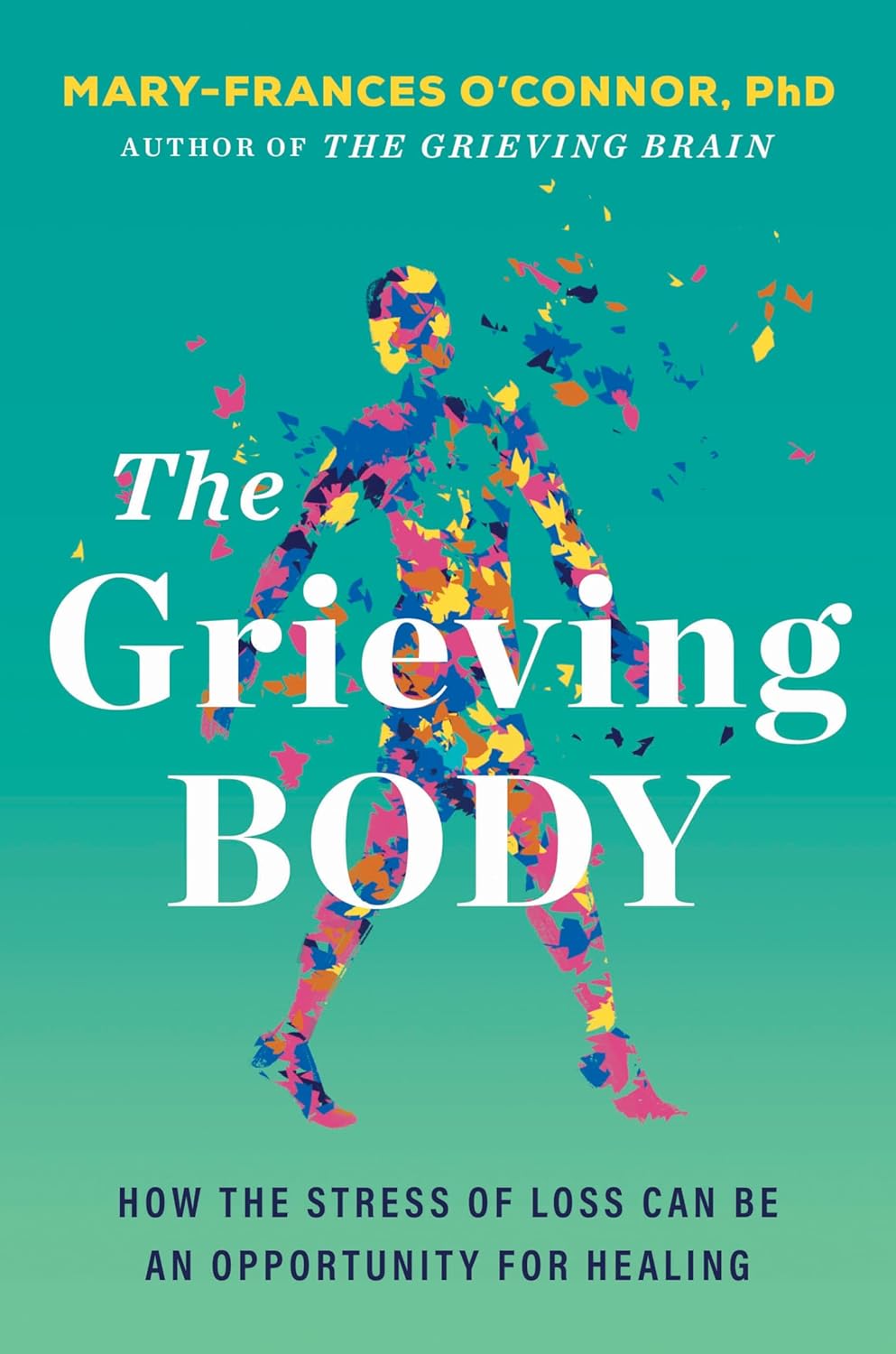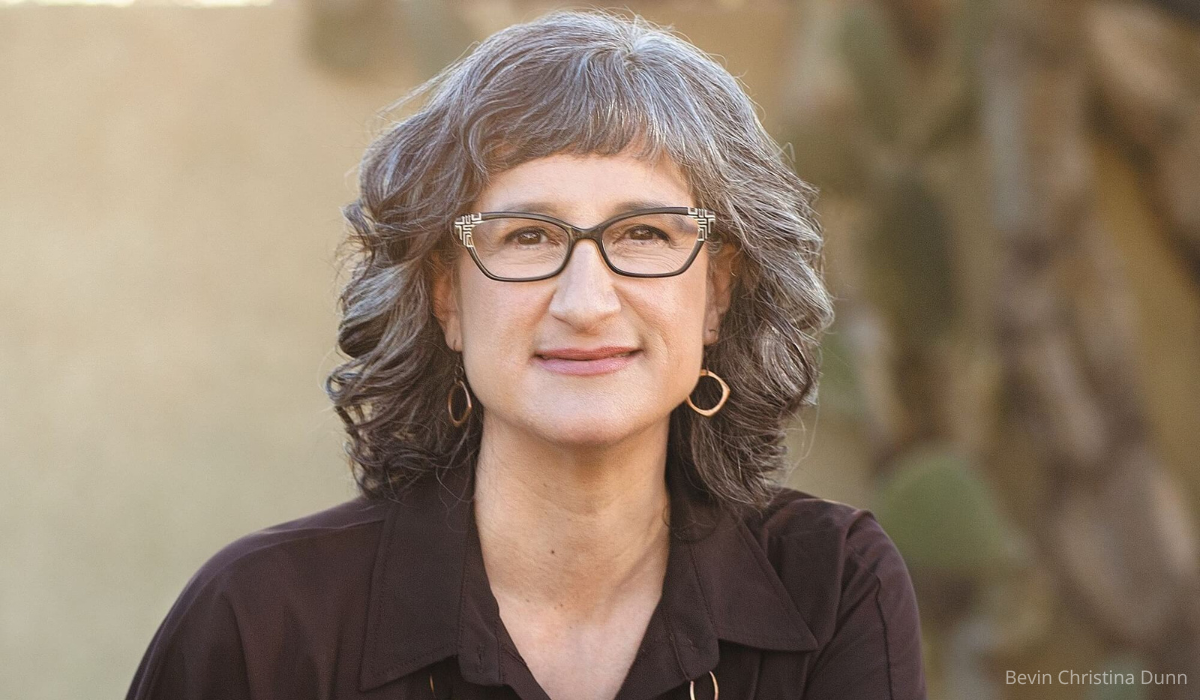Grief Can Take a Toll on Your Health

In the introduction of The Grieving Body: How the Stress of Loss Can Be an Opportunity for Healing, a stunning sentence leaps from the page: “Imagine how many times after a loss we might reach out for our one-and-only, by picking up the phone to call them, or even just realizing they are not in the room. When they are not there, our grieving body reacts.”
These words, written by the book’s author, Mary-Frances O’Connor, PhD, convey a truth that many of us feel but may not realize: that grief affects us on a somatic level. “I think many people are really surprised, in their own experience, how physical grief feels,” O'Connor, a leader in the field of grief research, tells The Sunday Paper.
As a Professor of Clinical Psychology and Psychiatry at the University of Arizona, O'Connor focuses her work on both the psychological and physiological impacts of grief, a subject dear to her for personal reasons. Her work highlights the nuances of how loss impacts our well-being. She shows us how grief not only manifests emotionally and mentally but also physiologically, affecting multiple body systems. So, we reached out to O’Connor to ask: How can we best take care of our health when facing the loss of a loved one?
The question felt grave and critical. We all either have or will face loss. And in our world lately, this truth has been immense. O’Connor, who is kind and insightful, offered her tips on how to care for your body when grieving. Her insight provides solace and hope in the face of life’s most difficult realities.
A CONVERSATION WITH MARY FRANCES O’CONNOR, PHD
Reading your quote, “imagine how many times after a loss we might reach out for our one-and-only, by picking up the phone to call them,” really gives words to how grief is felt. Starting there, how does grief impact us physiologically?
We forget that emotions have a physical component to them—any emotion. And grief is no exception. And in addition to that, you can't really talk about grief without talking about love and bonding. Because to understand what you've lost, you'd have to understand what is there in the first place. We bond with our one and only. You fall in love with your baby, or you fall in love with the person who becomes your spouse. That your brain encodes a “we” that is different from you or me. And what it means is that you learn to navigate the world with that other person as your external pacemaker. So, when that person is amputated from your life, you have to figure out how to walk through the world with that big hole. And that means, physiologically, all your systems have to figure out how to regulate without this person.
Your work shows us that while we are equipped to handle loss, it can also leave our health vulnerable and susceptible to illness and other conditions. How can we make this distinction?
One distinction I want to make is between heartache and heartbreak. Heartache is the painful aspect of grieving. Heartbreak is where we move into the range of something being broken by the stress of the grief experience. That could be many things—it could be a heart attack, succumbing to pneumonia, or something else. So, there is a distinction between yes, our body is resilient and able to absorb the blow of loss, even though it is painful and causes suffering. On the other hand, this can be a medically risky time, and so we want to be aware of how much our body can endure and how we can support the grieving body medically to get us through this difficult period.
A Health Checklist for When You’re Grieving
As O’Connor says, numerous bodily systems can be impacted by loss. If you’re grieving, she suggests paying close attention to the following:
Your Heart Health
O’Connor’s work shows that mortality after a loved-on has long been a research topic—but more recent light is being shed on the specific bodily systems that are impacted—one being cardiovascular health. O’Connor points to a Danish study from earlier this year that found both bereaved men and women face an increased risk of dying from cardiovascular disease. (The study showed an increased three-year mortality, leading to eight additional men dying of cardiovascular disease for every 1000 individuals than would have happened if they were not bereaved. For women, the increased three-year mortality was five additional deaths per 1000 individuals compared to if there had been no bereavement.) “Bereavement is a time where we have to be aware that our heart is under increased stress,” says O’Connor.
To care for a grieving heart, O’Connor says it is critical to pay attention to any symptoms and to be aware of the stress this can have on your heart. Go to the emergency department if you are experiencing chest pain or shortness of breath. .
Hypertension
O’Connor says that hypertension is increased during bereavement, on average, in the first six months. Therefore, it is essential to visit your regular doctor for an annual physical and have them check your blood pressure. “There is nothing special about the hypertension that occurs during bereavement,” adds O’Connor. “It is just important to be aware.”
Your Respiratory Health
Grief also brings an increased mortality risk linked to respiratory diseases, like pneumonia.
Your Immune Function
“The immune system makes a shift in its balance during bereavement, such that it is less effective against viruses,” says O’Connor. That means, if you’re facing loss, make sure to get your vaccines, regular bloodwork, and stay on top of any screenings or treatments your doctor recommends, as you’re more susceptible to illness.
O’Connor makes an additional point. “Often, when we've been caring for a loved one who's been terminally ill, we haven't been for our regular checkup, right?” Now is the time to double down on your care, even at a moment where motivation may be difficult.
Your Dental Health
Periodontal disease can also increase during this time, though not as commonly as cardiovascular and immune problems. That underscores the importance of maintaining regular cleaning and dental exams, says O’Connor. “Again, when we're grieving, it is hard to find the motivation to do much of anything, but knowing this can maybe encourage us to go ahead and make a dental appointment,” she adds.
Your Mental and Emotional Health
There is an increased risk of suicide for bereaved people, “which is, of course, another way that we end up with a mortality risk,” adds O’Connor. This tragic truth is a reminder to care for your mind and emotions as you are going through the adjustment of bereavement, and to seek support. “If we are aware of these thoughts, we really must reach out and be honest about that with people we're close with, with a suicide prevention line, with our pastor, or whoever we can to tell them honestly how we're doing,” added O’Connor.
Editor’s Note: If you are facing a crisis and need support, know that help is there. Reach out to the American Foundation for Suicide Prevention. Call or Text 988 or Text TALK to 741741.
3 More Things to Know:
#1: Consider How You’re Coping
Often, certain coping strategies, such as alcohol consumption or substance abuse, during bereavement can be hard on our health. O’Connor recognizes that this is often a response to the acute pain of loss, and it is critical to be aware of this.
#2: Be Mindful of Sleep and Nutrition
“One of the most challenging aspects of adapting to the loss of our loved one is learning how to regulate our sleep and our eating,” says O’Connor. Insomnia is common, as is leaning into unhealthy eating habits, either by eating too little because of no appetite or eating too much to cope. Changes in our hormones occur in response to the loss of someone we’re attached to, which can impact these functions.
O’Connor says it can be helpful to know these experiences can be common, and that our body can adjust to normal sleeping and eating schedules again. Simple practices, such as getting up at the same time every day, even if we've had little sleep, can help reset our circadian clock and help the body reestablish these healthy patterns. The same applies to eating: Even if your appetite is very low, O’Connor says you may want to consider small meals or even snacks throughout the day rather than large meals that require preparation and forethought. And be sure to eat mindfully and healthily, leaning into proteins, fiber, fruits, and vegetables.
#3: And Lastly, As Hard As It Is, Grieving Can Offer an Opportunity to Heal
“It has helped me enormously, and some of this has been from my neuroscience research, to think of grieving as a form of learning," says O'Connor. "We have to understand that our loved one, who should always have been there, is truly gone. And then we must understand: What does that mean for our lives? Those are painful lessons that take a long time to learn and are partly a result of our automatic habits and implicit beliefs. So, we can’t put ourselves on a timeline, because learning takes its own time.
The other term I like to consider is 'integrated.' So rather than thinking of closure or getting over your grief, I think about, How do I integrate this loss into my ongoing life? What chapter am I in now, in my life story, that has been shaped by what came before but is focused on the present moment?”

Mary-Frances O'Connor is a Professor of Clinical Psychology and Psychiatry at the University of Arizona. Her research focuses on the physiological correlates of emotion, in particular the wide range of physical and emotional responses during bereavement, including yearning and isolation. She is the author of The Grieving Body and The Grieving Mind. Learn more at maryfrancesoconnor.org.
Please note that we may receive affiliate commissions from the sales of linked products.



